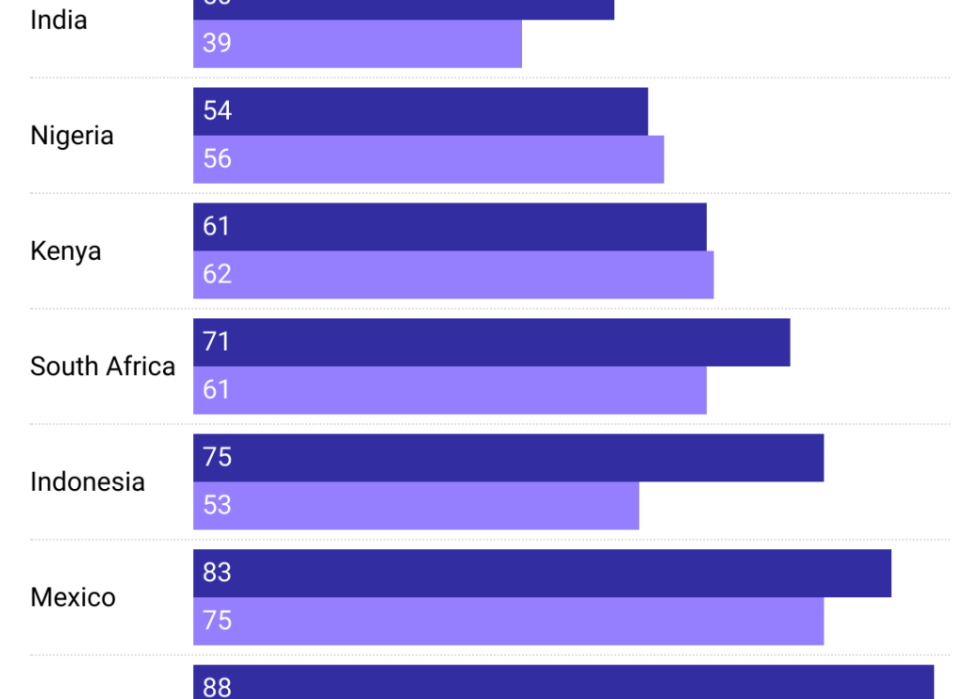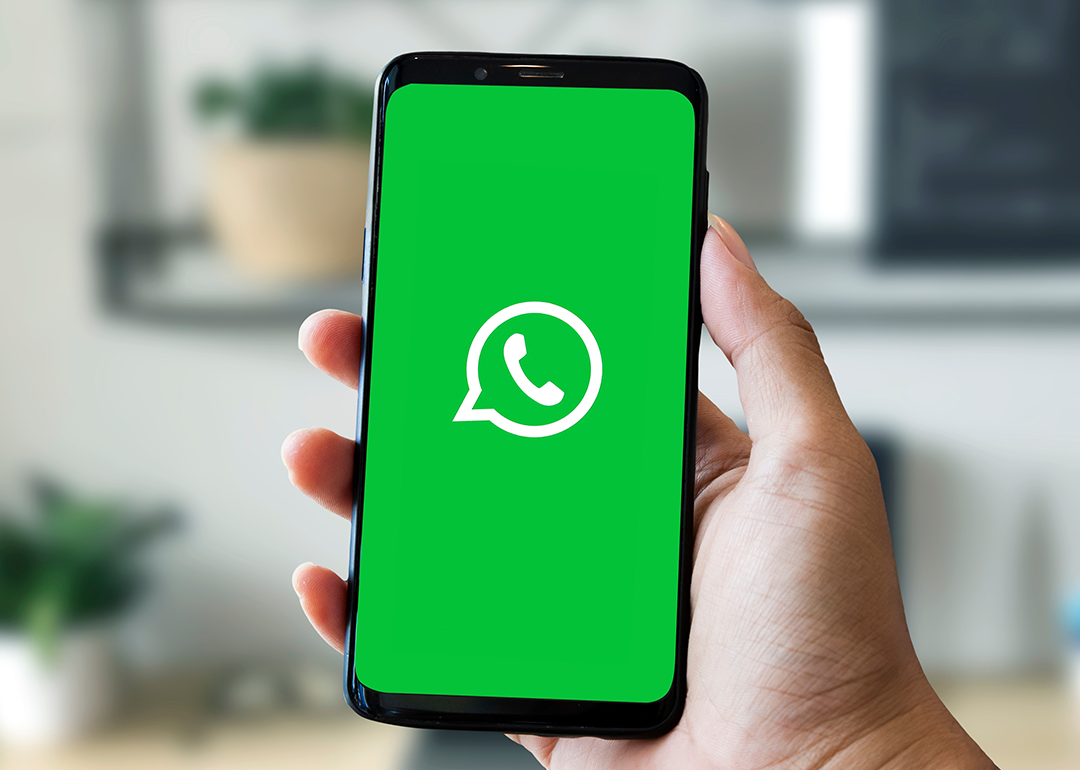Why one of the most popular apps in the world may finally be poised to take off in the US

In other middle-income countries, Pew data suggests that at least half of adults use WhatsApp for communication.
U.S.-based users were previously immigrants and families with international ties. As Americans traveled abroad at record-breaking rates in the years after the pandemic, they may have come across more people who primarily use WhatsApp to communicate. Survey data collected in May and June by Morning Consult also revealed that WhatsApp is commonly used by more affluent shoppers in the States: 37% of luxury shoppers used the service compared to 23% of all Americans.
Founded in 2009 and acquired by Meta in 2014, WhatsApp was largely left to its devices until 2019, when its parent company started focusing more on its potential. Part of that has included supporting businesses using its platform for marketing and customer service purposes. The company rolled out features allowing users to purchase things directly in the app in 2022. Meta also allows companies to hook their sales software up to WhatsApp to work as an instant messaging service akin to SMS marketing services.
The foundation of WhatsApp's popularity globally was rooted in its being a free alternative to paid SMS and MMS plans offered by phone carriers, which can get pricey depending on the volume of messages sent. In the U.S., most phone plans have included unlimited text messaging bundled into their offers for at least the last decade. However, WhatsApp also offers an elevated, cross-platform messaging functionality that could find broader appeal with American smartphone owners fed up with their proprietary, built-in messaging apps.
For example, WhatsApp has benefitted thanks to Apple's history of punishing iPhone users messaging Android users via the built-in messaging app iMessage. The company has ignored the painstaking experience of sending and receiving ultra-pixelated pictures and videos or trying to send group messages with Android users, something court documents revealed recently was a business decision intended to keep users from leaving the Apple product ecosystem.
WhatsApp offered a third option to users tired of those drawbacks, allowing for encrypted, online instant messaging, group messaging, and sharing of high-definition media using a phone number as the personal identifier—just like built-in messaging apps. The latest iOS 18 update finally aims to address several of those longstanding issues. However, lukewarm reviews of the update thus far may mean WhatsApp is still the best messaging option for people communicating between different devices.
As Meta continues to push new features to the app Zuckerberg has called "the private social platform of the future," more Americans should be on the lookout for that green text bubble from a friend or family member asking them to move the conversation to WhatsApp.
Story editing by Carren Jao. Additional editing by Kelly Glass. Copy editing by Kristen Wegrzyn.
